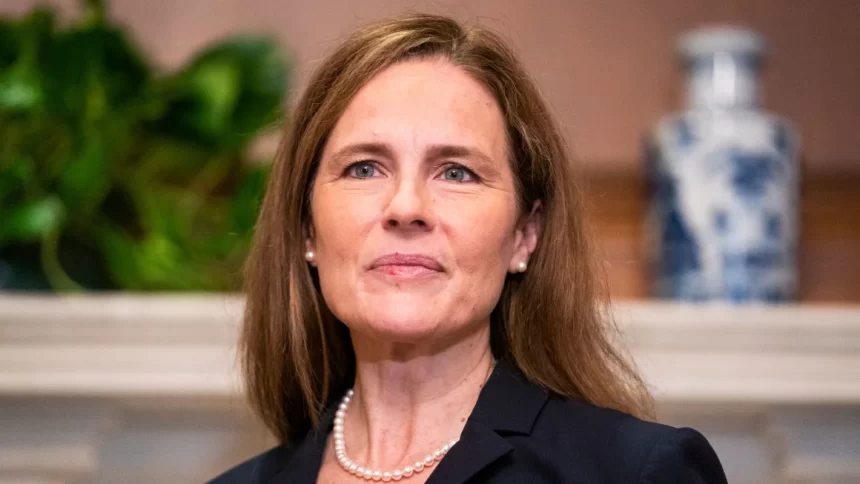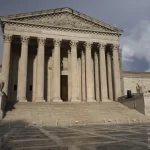Amy Coney Barrett on Monday became the latest Supreme Court justice to address ethics concerns, saying that she thought it would be a “good idea” for the justices to adopt a formal code of conduct that would directly bind the justices.
Her comments came during an appearance that was briefly interrupted by protesters at University of Minnesota Law School in a talk moderated by Professor Robert A. Stein. “Not the Court, not the State, People must decide their fate,” chanted the protesters, who appeared to make reference to her controversial vote last year to overturn Roe v. Wade – a decision that has triggered protests nationwide.
When the talk resumed, Barrett confirmed that the justices have been discussing ethics concerns and are committed to holding themselves to the “highest standards.”
It would be a “good idea” to adopt a formal code, she said, “particularly so that we can communicate to the public exactly what it is that we are doing in a clearer way than perhaps we have been able to do so far.”
She stressed there is “unanimity among all nine justices that we should and do hold ourselves to the highest ethical standards possible
Although Barrett didn’t address specific concerns, news reports over the last several months have detailed alleged ethics lapses on the part of some of the justices and Democrats in Congress are pushing for legislation that would enforce a code conduct.
Other justices have confirmed in recent months that talks about ethics are ongoing, although no concrete steps have been announced. Barrett said she couldn’t speak to the timing of any announcement.
Barrett, who voted with her conservative colleagues last year to overturn the landmark Roe v. Wade decision that established a constitutional right to an abortion, was also asked about when a justice should vote to overturn precedent.
She said that there are several considerations a judge thinks about when voting to overrule precedent, including the “effects of that error” on the law today and whether the error “has distorted other areas of the law.”
“Overturning precedent is not something to be done lightly,” Barrett said.
On a different note, Barrett, who has seven children, also spoke of the perils of being a working mother – noting that she shares the same struggles as many working parents.
She recounted a morning last term where one of her children had been listening to the Baha Men’s “Who let the dogs out” just before the school bus arrived.
Hours later, Barrett confessed, she found herself walking down the austere marble hallways of the court humming the hit because she couldn’t get it out of her head.
Motherhood, Barrett said, is very “grounding” and keeps her “very much rooted in real life.”
Asked if she was enjoying herself on the high court, Barrett said the job has its “ups and downs” and that she feels a “grave responsibility” at times.
“Enjoying myself is not quite the word I would use, but it is a privilege to serve, and I have no regrets about undertaking the service, and I am fully conscious that everything I am doing is very important for the people of America and those are the people for whom I work,” she said.










